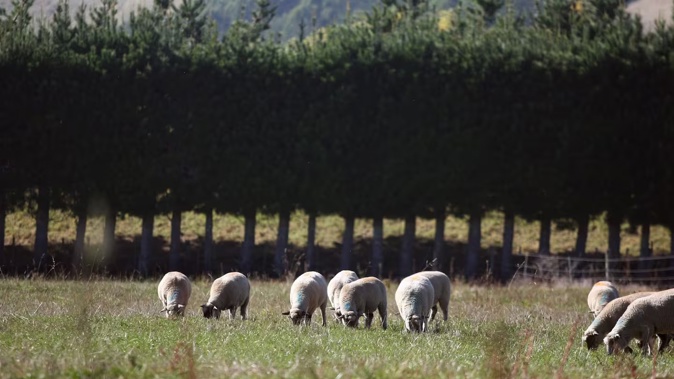
A new white paper warns there will be a significant transition of sheep and beef farms into pine forestry unless current Government policies and economic signals are reconsidered.
Called “Why Pines?”, the paper summarises the results of four recently completed research programmes, funded by Our Land and Water.
They investigated how land uses might change in the future to meet New Zealand’s environmental goals.
The four research programmes used different techniques and perspectives, but all found a likely increase in pine plantations on land currently used for sheep and beef farming.
White paper co-author and director of Our Land and Water, Dr Jenny Webster-Brown, said while the results “raise significant concerns”, they were not a prediction of an unavoidable future.
She said the results were “surprisingly consistent” and showed what could happen if current policies and economic signals didn’t change to accommodate different ways of thinking about land use.
Webster-Brown hoped the Government would take note of the findings.
“We are hoping that policy developers will recognise that the policy is driving us in a certain direction which is not necessarily what we want, and they will read it and take it on board,” she told The Country’s Jamie Mackay.
She said she also hoped sheep and beef farmers, and exporters, would read the paper and find more impetus to consider how to get extra value for their products, “so it stacks up better against pine forests”.
She said the paper was also important for climate change policymakers.
“We are hoping that the climate change policy developers can think about native forests as an alternative pine forest - making native forest planting more affordable and more rewarding, in terms of how we count carbon credits.”

Dr Jenny Webster-Brown is a co-author of Why Pines? a new white paper on how land uses might change in the future.
The paper found both pine forestry and sheep and beef farming created positive and negative impacts.
Lead author, principal economist at NZIER and science leader at Our Land and Water, Dr Bill Kaye-Blake, said rural communities were concerned a large change to pine forestry would threaten intergenerational connections to their land.
He said they were also concerned that it would reduce population, employment and services in their communities, harming the health and wellbeing of those left behind.
The four recently completed research programmes aimed to provide more information about the scale of change required by the rural sector to meet freshwater obligations and the specific nature of the challenges of that transition.
“This research gives us a wider perspective on how water quality policy, climate policy, and market signals could combine to drive a transition that New Zealanders might not want,” Kaye-Blake said in a statement.
“The results raise questions about the choices our country wants to make. The answers will have big implications for our landscapes.”
Why Pines? calls for widespread national-scale discussion about the social and community impacts of climate change policy, the Emissions Trading Scheme (ETS) and the National Policy Statement for Freshwater Management (NPS-FM).
Why Pines? also highlights the need for ongoing research funding to produce robust data for less dominant and emerging land-use opportunities, and to quantify the risks and benefits of both pine and native forestry, so analysis to inform policy decisions around future land use can be improved.
Webster-Brown said in a statement that there would be challenges but that didn’t mean the future wasn’t positive.
“It is not going to be easy, but there is still time to redirect our system to a pathway that better reflects the aspirations of our farmers and all New Zealanders.”
The white paper identifies eight areas for action to support more diverse land use in future:
- - Wool and red meat exporters can continue to improve the economic performance of their value chains, building on the efforts of the sector and sharing added value with producers to invest in mitigation activities.
- - Collaborative research between scientists and producers can develop lower-cost, more effective mitigation options for sheep and beef farms to reduce contaminant leaching and runoff.
- - Policymakers, producers, financial institutions and researchers could recognise other benefits associated with non-forestry land uses. For example, in places where the land is suitable, a small amount of horticulture could replace some of the jobs lost from sheep and beef farms.
- - Policymakers could take into account the social and cultural benefits of sheep and beef farming.
- - Researchers and policymakers can quantify the risks and benefits of pine forestry that have not been included in computer models so far.
- - Policymakers can recognise the benefits of native forestry. Converting highly erodible pasture to native forests should be prioritised to reduce erosion across Aotearoa New Zealand.
- - Policymakers can reassess the influence of climate change policy on land-use change and its impacts on communities and the sheep and beef sector.
- - All New Zealanders have an interest in the wider implications and consequences of land-use change to achieve healthy waterways and could participate in discussions and decisions on this topic.
- RNZ
Take your Radio, Podcasts and Music with you









